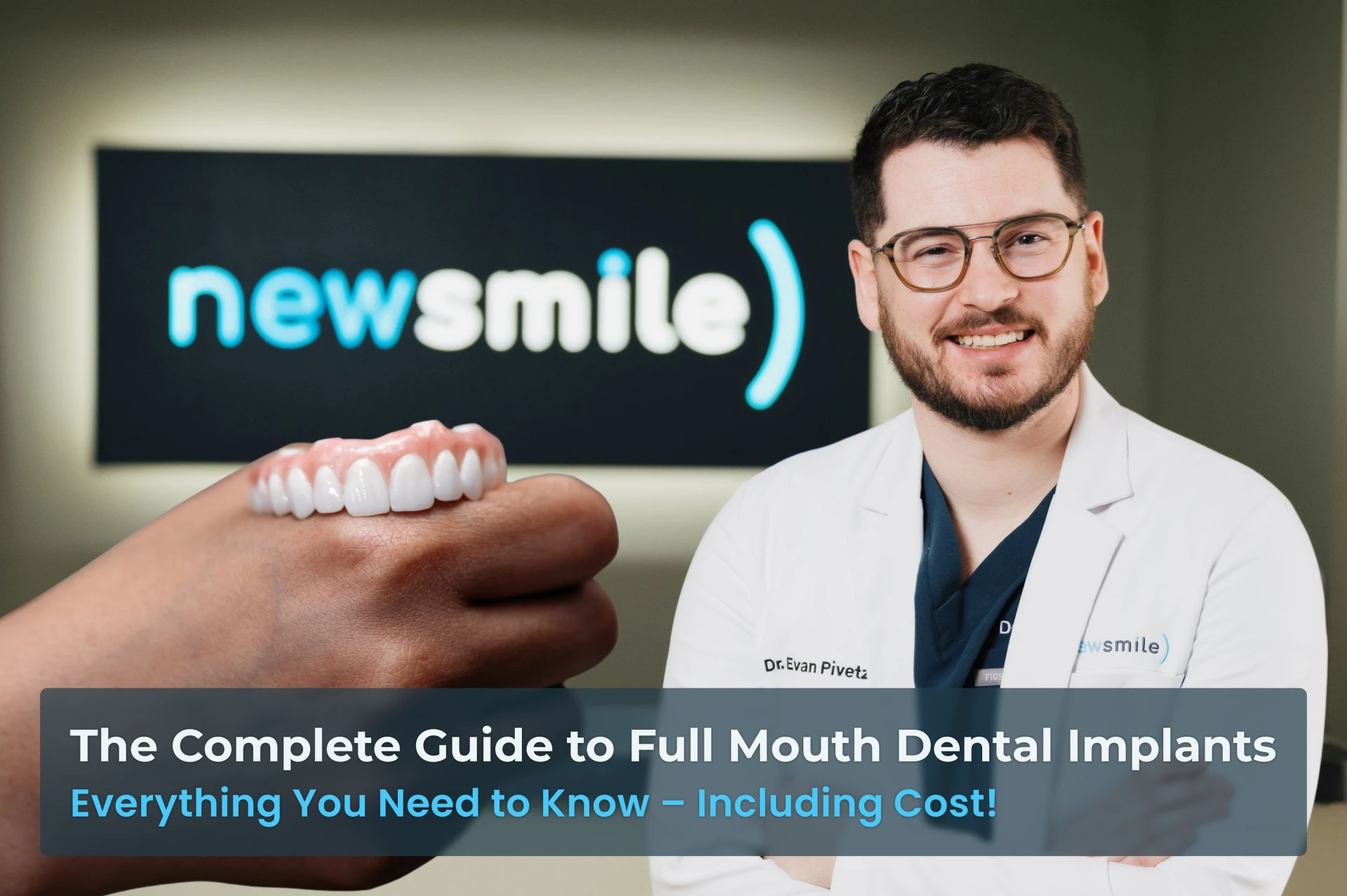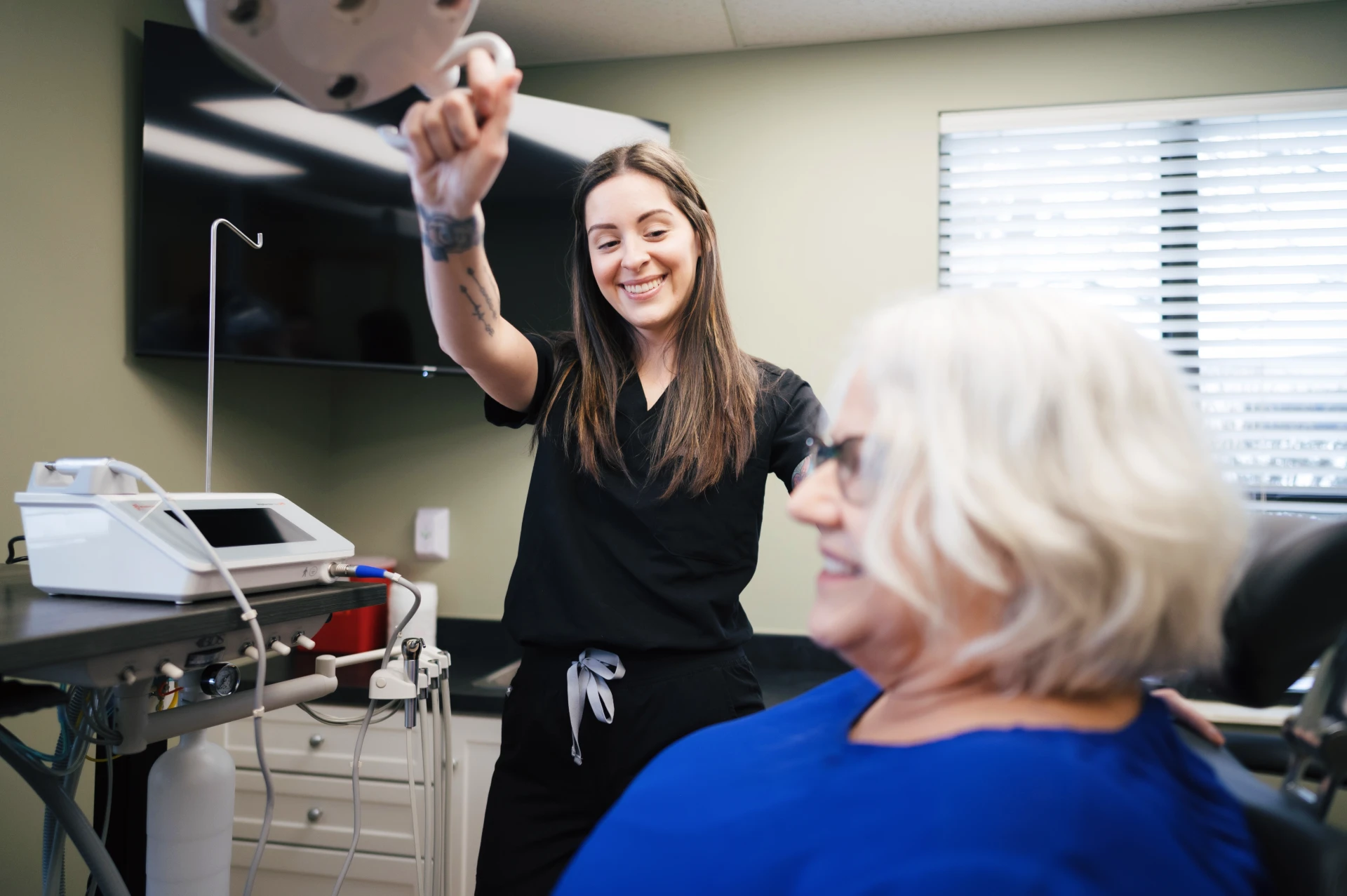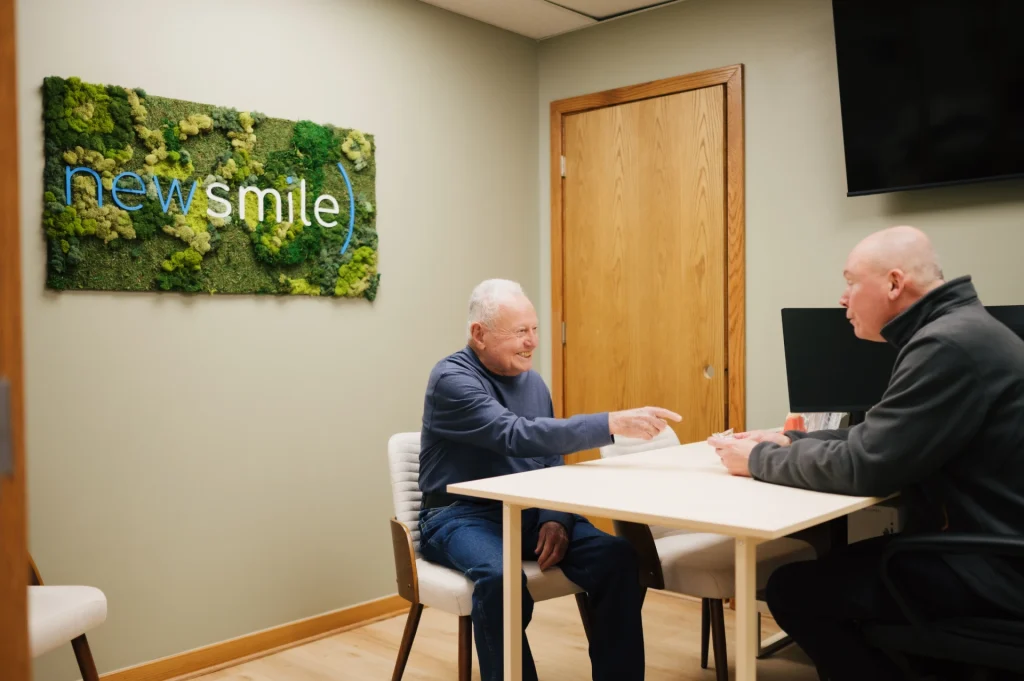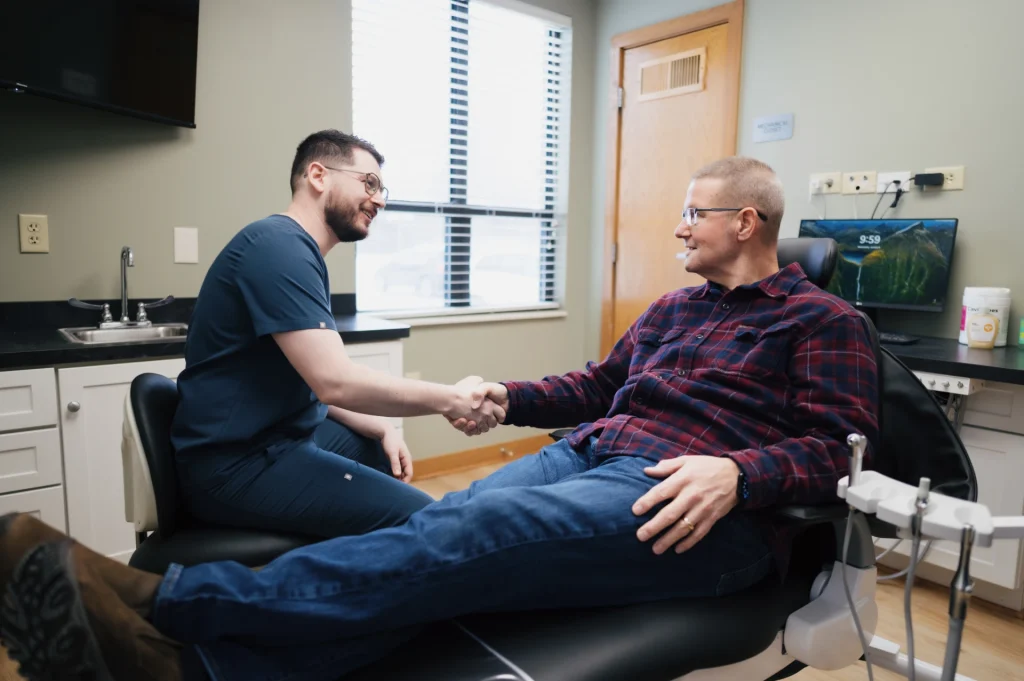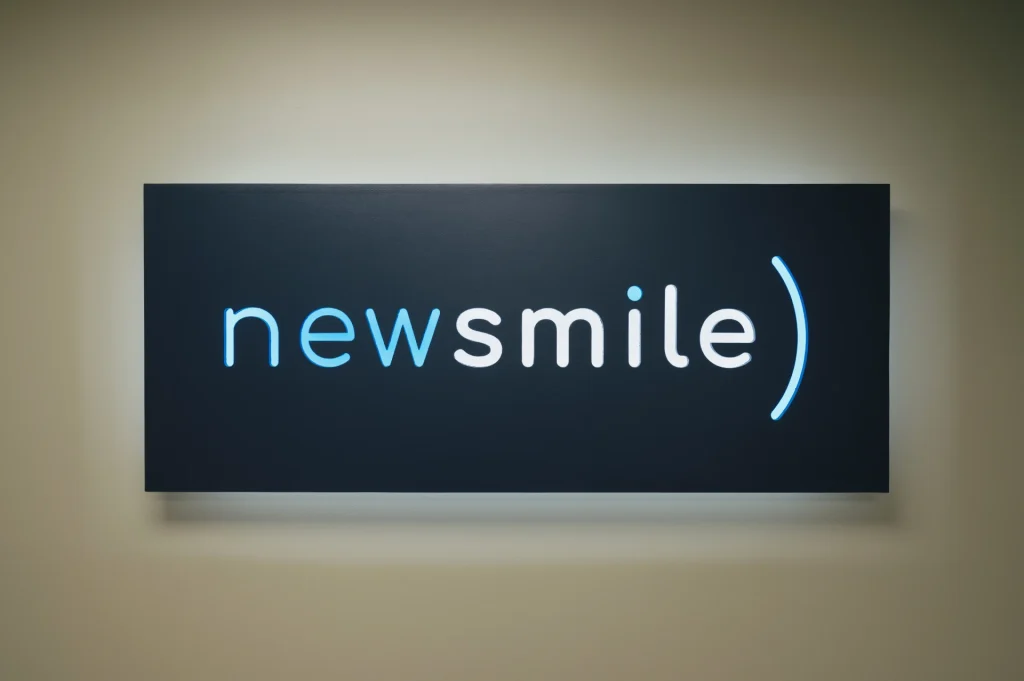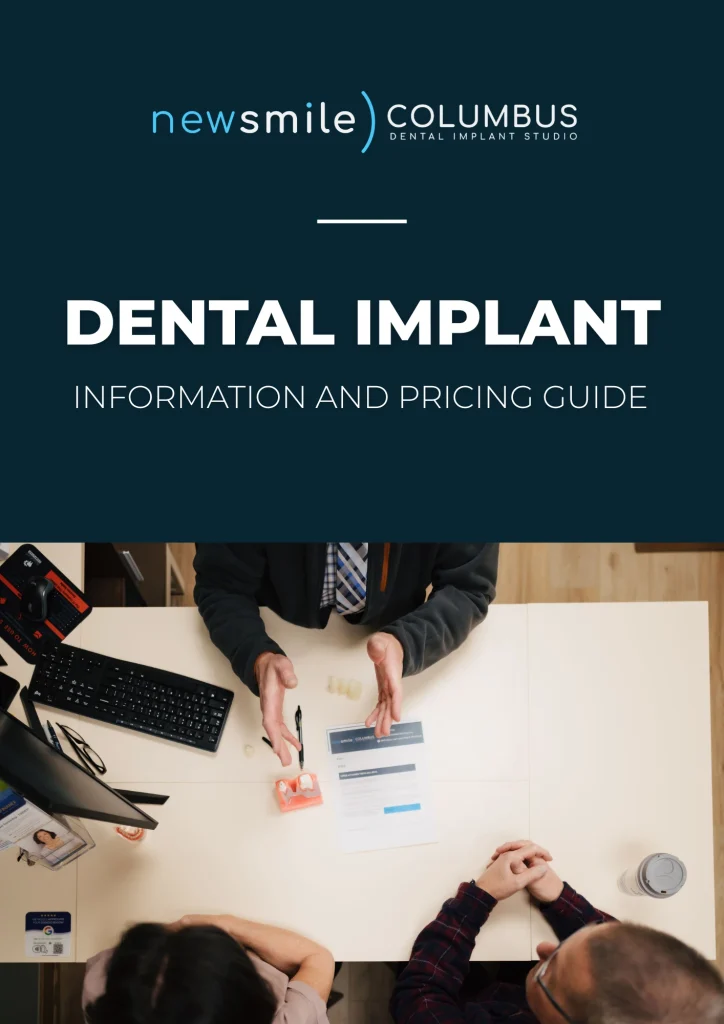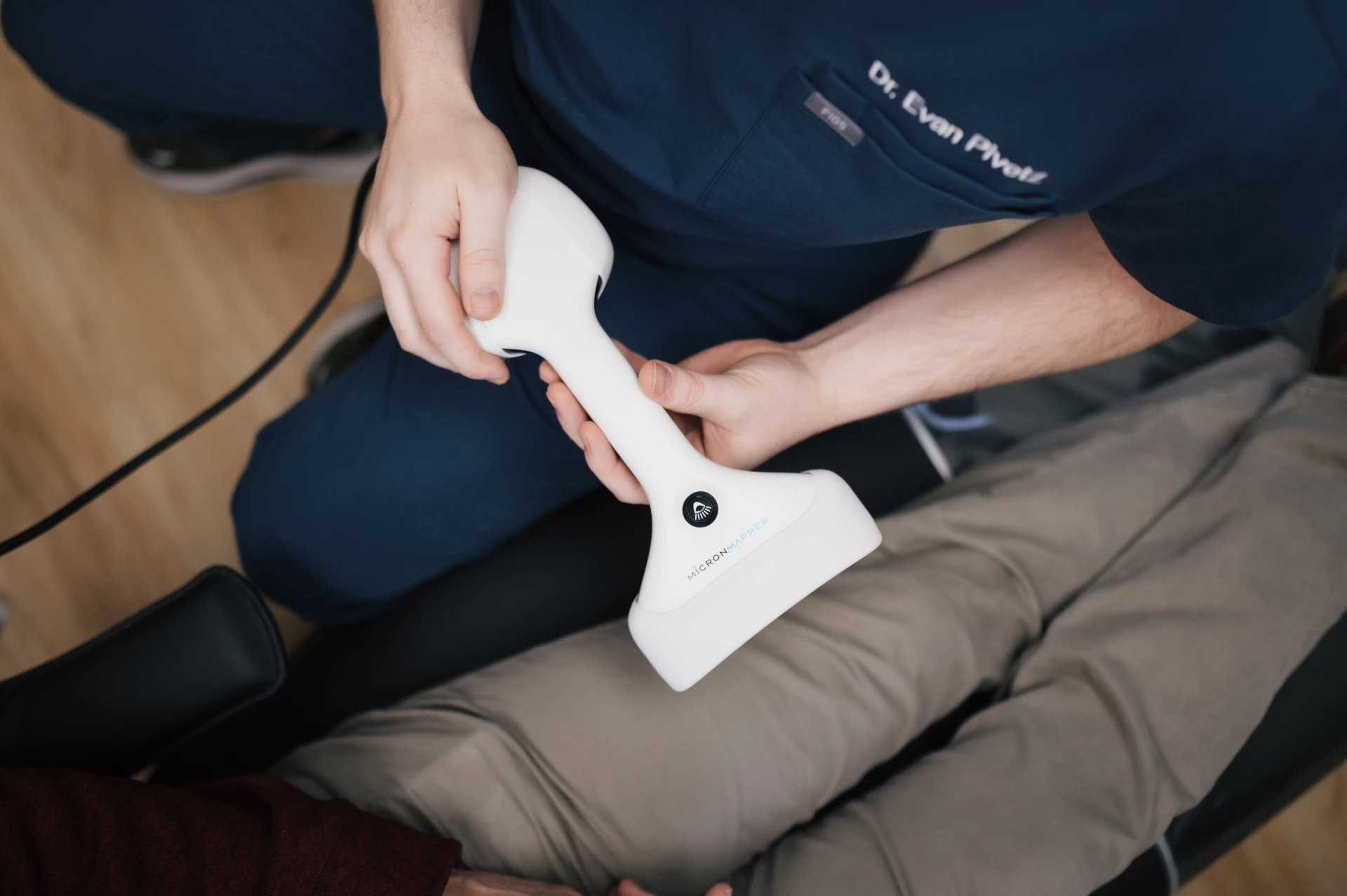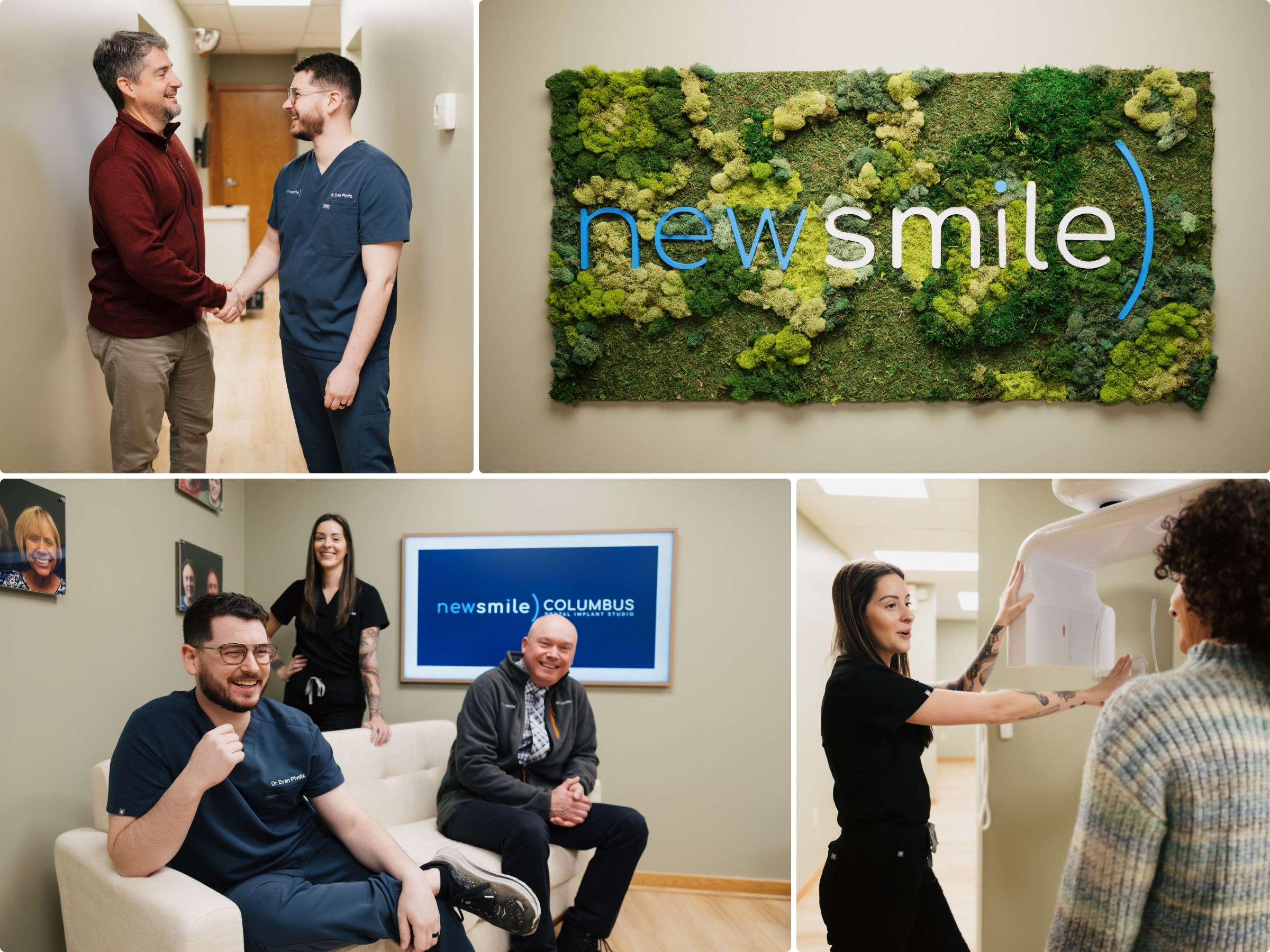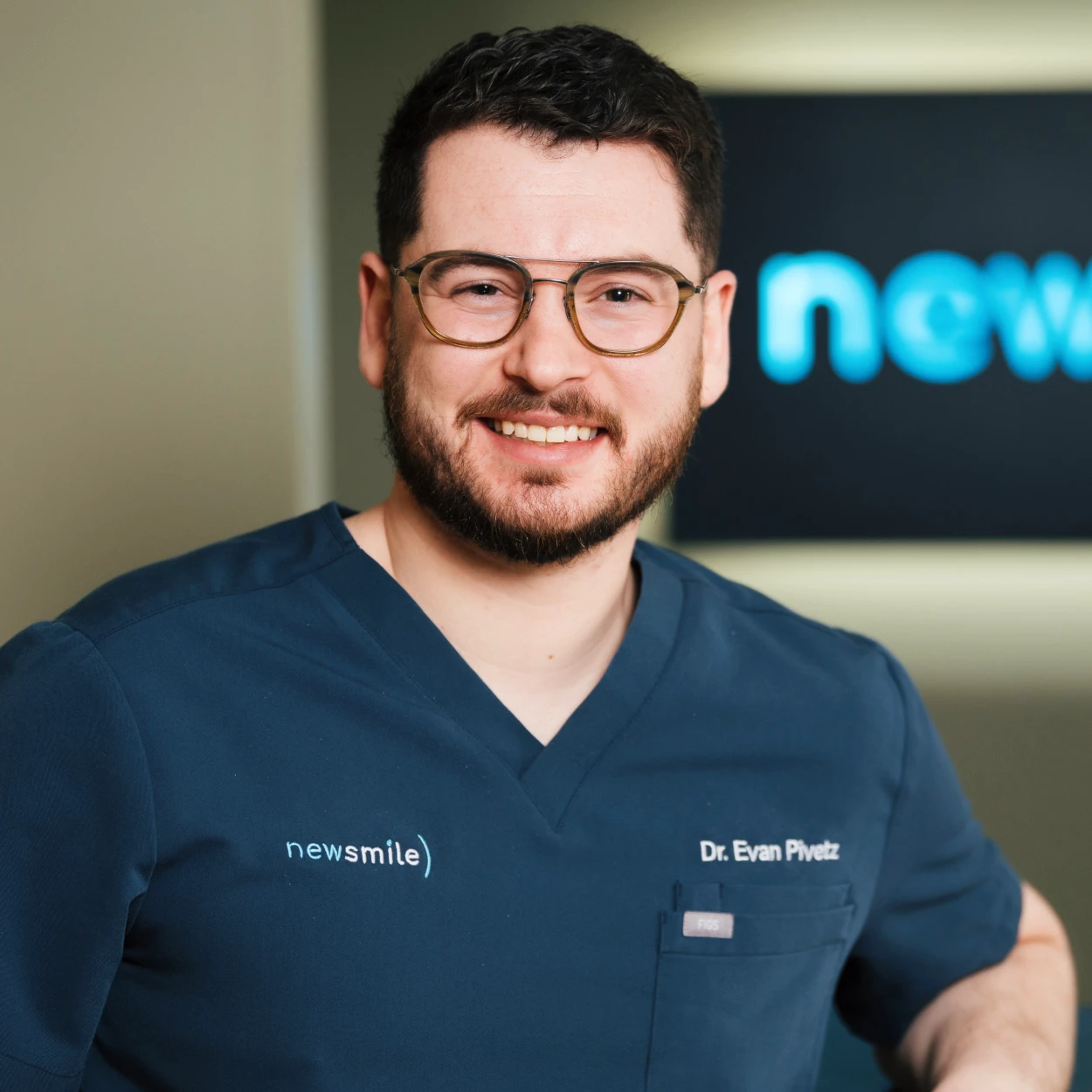Full Mouth Dental Implants: Everything You Need to Know, Including Cost!
- By: Dr. Evan Pivetz
If you are tired of being on the "dental carousel," going from one failing root canal or crown to the next, this guide is for you. Perhaps you are suffering from advanced gum disease, have many missing or failing teeth, or are wearing an uncomfortable, loose-fitting denture that keeps you from eating the foods you love. You may even be afraid you're going to end up in a denture and are looking for a better, permanent alternative.
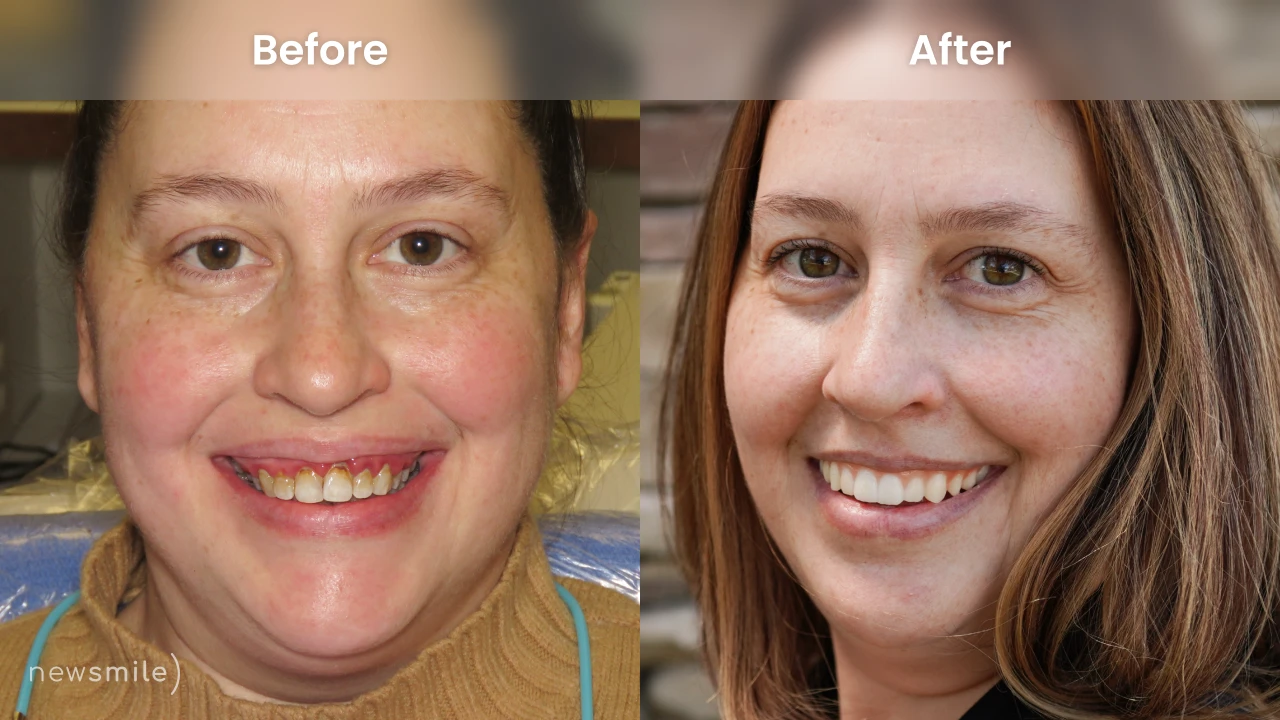
Whatever your reason, you deserve to have teeth that are strong, natural-looking, and allow you to eat, chew, and smile with complete confidence. This comprehensive guide will walk you through everything you need to know about full mouth dental implants, from your first question to your final, new smile. We will cover:
- What implants are and how they work.
- Who is an ideal candidate (and the myths about age and bone loss).
- The different types of solutions (like All-on-4 vs. Snap-In Dentures).
- Your comfort and sedation options.
- The step-by-step procedure from start to finish.
- Recovery, aftercare, and what you can eat.
- A clear breakdown of the cost and financing options.
Let's begin.

